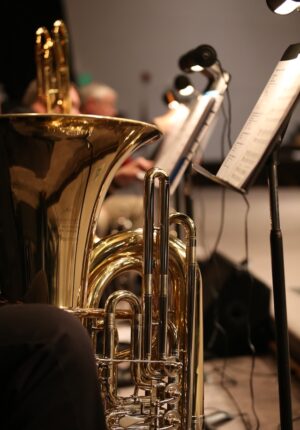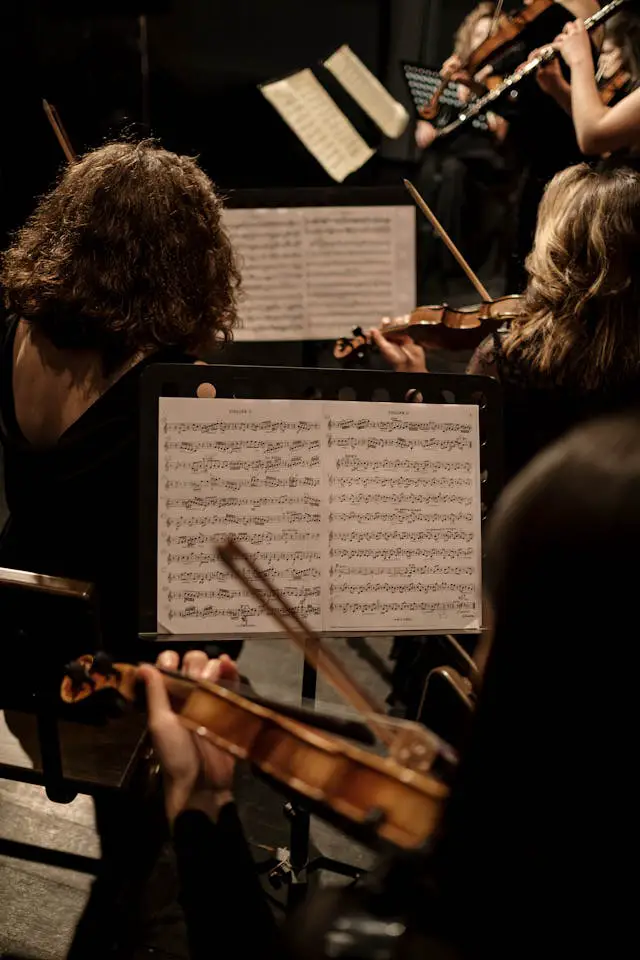

category
What is classical music
classical music (small ‘c’) is used when referring to Western instrumental, orchestral, vocal and choral music – created for both secular and sacred settings. In this category, I will be a bit more focused on baroque era operas, oratorios, anthems, concerti grossi, and organ concertos.
music written in a Western musical tradition, usually using an established form (for example a symphony). Classical music is generally considered to be serious and to have a lasting value. The contemporary understanding of the term “classical music” remains vague and multifaceted. Other terms such as “art music”, “canonic music”, and “serious music” are largely synonymous.
The Oxford Dictionary
discover
Classical Music: A Journey Through Time and Sound
Introduction
Classical music, with its timeless melodies and intricate harmonies, has woven itself into the fabric of human culture. From the grandeur of symphonies to the delicate notes of a solo piano piece, classical compositions evoke emotions, tell stories, and connect generations. In this article, we embark on a musical odyssey, exploring the origins, evolution, and enduring impact of classical music.

The Origins: A Prelude in Monophony
Our classical music journey begins in the dimly lit halls of medieval European monasteries, where monks meticulously transcribe sacred chants, creating the earliest notated music. Gregorian chant, with its hauntingly beautiful melodies, echo through stone walls, carrying prayers to the heavens. These monophonic chants laid the foundation for Western classical music, setting the stage for polyphony—the art of combining multiple voices.
The Renaissance: A Flourish of Polyphony
As the sun rose on the Renaissance, composers like Josquin des Prez and Palestrina adorned their compositions with intricate harmonies. The Notre-Dame school in Paris experimented with polyphony, introducing rhythmic innovations and intricate vocal lines. The motet, a genre that combined sacred texts with secular melodies, flourished. The air was filled with the sweet interplay of voices, like a tapestry woven by skilled hands.
Baroque Splendor: Bach, Vivaldi, and Handel
The Baroque era ushered in a golden age of music. Johann Sebastian Bach, the master of counterpoint, wove intricate fugues and chorales. His “Brandenburg Concertos” danced with exuberance, while his “St. Matthew Passion” moved hearts. Antonio Vivaldi’s concertos painted vivid landscapes—the “Four Seasons” capturing the changing moods of nature. George Frideric Handel composed majestic oratorios, including the timeless “Messiah.” Baroque music was opulence and emotion entwined.
The Romantic Symphony: Beethoven and Beyond
Ludwig van Beethoven, a prodigy, shattered classical norms. His symphonies thundered with revolutionary fervor—the Ninth Symphony’s choral finale proclaiming brotherhood. The Romantic era embraced emotional intensity, with composers like Tchaikovsky, Brahms, and Chopin pouring their souls into every note. The piano became a confidante, revealing inner turmoil and unrequited love. The symphony orchestra swelled, echoing the human experience.
Impressionism: Debussy’s Watercolors
Claude Debussy, an artist with a musical palette, painted delicate watercolors in sound. His “Clair de Lune” bathed listeners in moonlight, while “Prelude to the Afternoon of a Faun” evoked dreamy landscapes. Impressionism blurred the lines between reality and imagination, inviting listeners to float on waves of harmonies.
The Modern Symphony: Stravinsky and Shostakovich
The 20th century witnessed great shifts. Igor Stravinsky’s “Rite of Spring” ignited riots—a primal dance of rhythm and dissonance. Dmitri Shostakovich’s symphonies bore witness to war, oppression, and resilience. The orchestra became a mirror reflecting the human condition, from triumph to tragedy.
Conclusion: A Coda of Endless Reverberation
Classical music endures, resonating across time. It whispers secrets, shouts revolutions, and cradles our deepest emotions. Immerse yourself in the symphonies, let the concertos carry you away, and dance to the minuets. For within these notes lies the essence of our shared humanity—a timeless melody waiting to be heard.

